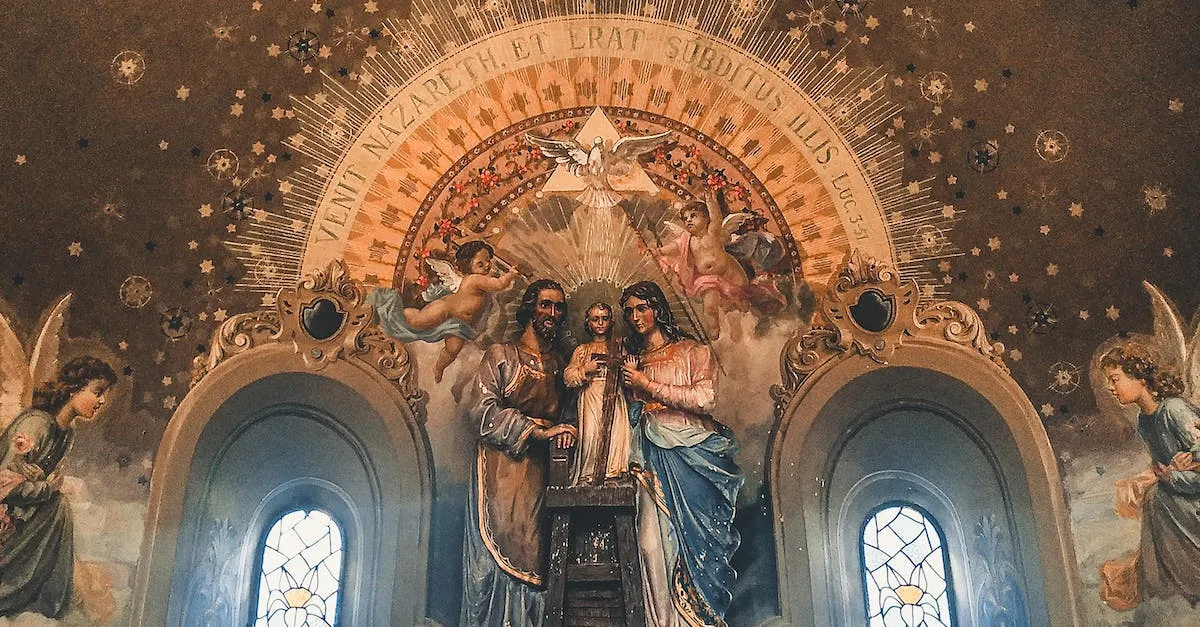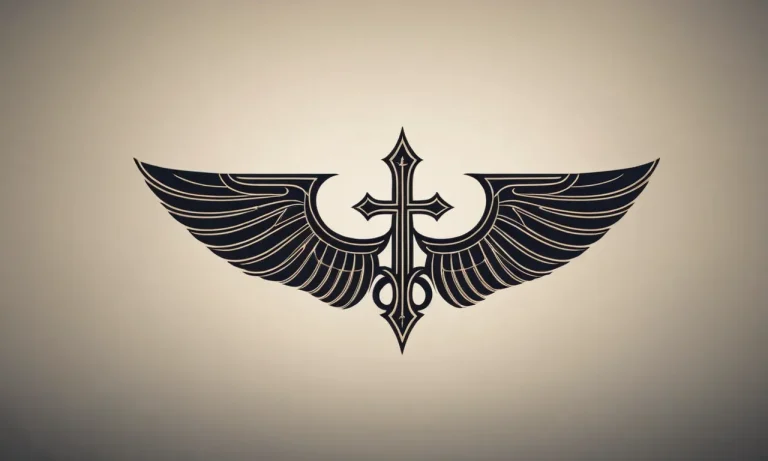Jehovah’S Witness Vs Christian Vs Catholic: Key Differences Explained
If you’re looking to understand the main differences between Jehovah’s Witnesses, Christians, and Catholics, you’ve come to the right place. While all three groups are part of the wider Christian tradition, there are some key distinctions in their beliefs and practices that set them apart.
In this comprehensive guide, we’ll provide an in-depth comparison of these three faiths to help you gain clarity on where they align and where they diverge on matters of theology, worship, governance, and more.
Origins and History
When and how Jehovah’s Witnesses were founded
Jehovah’s Witnesses were founded in the late 19th century by Charles Taze Russell. In 1870, Russell began publishing a magazine called “Zion’s Watch Tower and Herald of Christ’s Presence,” which laid the foundation for what would later become the Jehovah’s Witnesses.
The organization was officially established in 1884 as the Watch Tower Bible and Tract Society. Jehovah’s Witnesses believe that they are the only true Christians and that their teachings are based on a direct interpretation of the Bible.
Their beliefs and practices differ significantly from mainstream Christian denominations, leading to some controversy and misunderstandings. For example, Jehovah’s Witnesses do not celebrate birthdays or holidays such as Christmas and Easter, and they reject the idea of the Trinity.
They are known for their door-to-door evangelism and their strict adherence to biblical principles.
The early history of Christianity and Catholicism
Christianity has its roots in the 1st century AD and is based on the life, teachings, death, and resurrection of Jesus Christ. It emerged as a sect of Judaism and spread rapidly throughout the Roman Empire.
The early Christians faced persecution and were often forced to practice their faith in secret.
Catholicism, on the other hand, traces its origins to the time of Jesus Christ and the apostles. The word “Catholic” means “universal” and reflects the belief that the Catholic Church is the universal body of Christ.
The Catholic Church claims to be the original and true Church founded by Jesus Christ, with the apostle Peter as its first Pope.
Over the centuries, Christianity and Catholicism have evolved and developed different traditions, doctrines, and practices. While both share the belief in Jesus Christ as the Son of God and the Savior of humanity, there are significant differences in terms of hierarchy, sacraments, worship practices, and theological interpretations.
For more information on the history of Jehovah’s Witnesses, you can visit https://www.jw.org/en/jehovahs-witnesses/faq/history/.
To learn more about the early history of Christianity and Catholicism, you can visit https://www.catholic.com/tract/the-early-church-was-the-catholic-church.
Central Beliefs and Doctrines
Jehovah’s Witnesses beliefs about God, Jesus, and the afterlife
Jehovah’s Witnesses have some distinct beliefs about God, Jesus, and the afterlife that set them apart from other Christian denominations. They believe in the existence of one true God, Jehovah, and reject the Trinity doctrine.
According to their teachings, Jesus is not considered to be part of a divine Trinity but rather a separate entity, the first and highest creation of God. They believe that Jesus’ death and resurrection provided salvation and forgiveness for humanity, and that only a select group of 144,000 faithful Jehovah’s Witnesses will go to heaven to rule with Christ, while the rest of the faithful will live eternally on a paradise Earth.
Jehovah’s Witnesses also have unique beliefs about the afterlife. They do not believe in the concept of an immortal soul that continues to exist after death. Instead, they believe in the hope of a future resurrection, where the dead will be brought back to life on Earth.
They believe that only those who have been faithful Jehovah’s Witnesses and have followed God’s commandments will be resurrected to live in a restored paradise on Earth, while the wicked will be permanently destroyed.
Christian perspectives on God, Jesus, sin, and salvation
Christianity encompasses a wide range of beliefs and practices, but there are some key beliefs that are shared by most Christians. Christians believe in the existence of one God, who is three persons – Father, Son (Jesus), and Holy Spirit – in a divine Trinity.
They believe that Jesus is the Son of God who became incarnate, lived a sinless life, died on the cross to atone for the sins of humanity, and was resurrected to offer salvation and eternal life to all who believe in him.
Christians also believe in the concept of original sin, the idea that all humans are born with a sinful nature inherited from Adam and Eve. They believe that salvation from sin and eternal separation from God can only be achieved through faith in Jesus Christ.
Christians believe that salvation is a free gift from God, received by grace through faith, and not by good works or personal merit.
Key Catholic doctrines and dogma
The Catholic Church has a rich history and a distinct set of doctrines and dogmas that guide its beliefs and practices. Catholics believe in the Trinity, the Incarnation, and the divinity of Jesus Christ.
They hold that Jesus is the Son of God who became human to save humanity from sin and that he established the Church as the means of continuing his presence and work in the world. The Catholic Church also places a strong emphasis on the authority of the Pope as the successor of Peter and the visible head of the Church.
Catholics believe in the sacraments as visible signs of God’s grace, including the Eucharist, Baptism, Confirmation, Reconciliation, Matrimony, Holy Orders, and Anointing of the Sick. They believe in the necessity of good works for salvation and the importance of the intercession of saints.
The Catholic Church also teaches the doctrine of purgatory, a place or state where souls undergo purification before entering heaven.
Governance and Church Structure
Governing Body and organization of Jehovah’s Witnesses
Jehovah’s Witnesses have a unique system of governance and organization. They believe in a centralized authority known as the Governing Body, which is composed of a small group of men who are considered to be the spiritual leaders of the organization.
The Governing Body is responsible for making doctrinal decisions and providing spiritual guidance to Jehovah’s Witnesses worldwide.
The organization of Jehovah’s Witnesses is highly structured and hierarchical. Congregations are grouped into circuits, which are further organized into districts. At the top of the hierarchy is the Governing Body, followed by the branch offices, which oversee the work of the circuits and districts.
This centralized structure ensures uniformity in teachings and practices among Jehovah’s Witnesses.
Christian denominations and church leadership
Christian denominations, such as Protestant and Evangelical churches, have a more diverse approach to governance and church structure. Each denomination may have its own leadership structure, but most commonly, they have a pastor or a minister who leads the local congregation.
These pastors are often supported by a board of elders or deacons who assist in the decision-making process.
Unlike the centralized authority of the Governing Body in Jehovah’s Witnesses, the leadership in Christian denominations is usually decentralized, with each congregation having some autonomy in decision-making.
This allows for variations in teachings and practices among different Christian denominations.
The hierarchy and authority in the Catholic Church
The Catholic Church has a highly structured hierarchy and authority system. At the top of the hierarchy is the Pope, who is considered the spiritual leader of the Catholic Church. The Pope is assisted by the College of Cardinals, who are responsible for electing a new Pope when the position becomes vacant.
Beneath the Pope are the bishops, who oversee individual dioceses and are responsible for the spiritual well-being of the Catholics in their respective regions. Below the bishops are the priests, who serve as spiritual leaders in local parishes.
The authority and teachings of the Catholic Church are based on a combination of scripture, tradition, and the Pope’s infallible authority on matters of faith and morals.
It is important to note that while the Catholic Church has a centralized authority, it also allows for some variation in practices and customs among different regions and cultures.
Worship and Practices
Jehovah’s Witnesses traditions like preaching, Kingdom Hall meetings
Jehovah’s Witnesses are known for their dedicated approach to spreading their beliefs. One of their key practices is preaching, which involves going door-to-door to share their message with others. They believe that this is an important part of fulfilling their religious duty and spreading the word of God.
Additionally, Jehovah’s Witnesses gather for Kingdom Hall meetings, which are held in their local place of worship. These meetings involve studying the Bible, singing hymns, and participating in discussions about their faith.
They do not have elaborate ceremonies or rituals, focusing instead on the study and application of biblical teachings.
Christian worship services, sacraments, and rituals
Christian worship services vary depending on the denomination, but they generally involve singing hymns, praying, and listening to a sermon. Christians also partake in sacraments, such as baptism and communion, which hold significant religious meaning.
These sacraments are seen as acts of obedience and symbols of faith. Additionally, Christians may participate in various rituals and practices, such as confession, confirmation, and marriage ceremonies.
The specific rituals and practices can differ among different Christian denominations, reflecting their unique beliefs and traditions.
Catholic Mass, sacraments, holidays, and obligations
Catholics place great importance on the Mass, which is considered the central act of worship. The Mass involves prayers, scripture readings, hymns, and the Eucharist, where bread and wine are believed to be transformed into the body and blood of Christ.
Catholics also participate in sacraments such as baptism, confirmation, confession, and marriage. These sacraments are seen as channels of God’s grace. In addition to sacraments, Catholics observe various holidays and obligations, including the celebration of Christmas, Easter, and attending Mass on Sundays and holy days of obligation.
These practices are deeply rooted in Catholic tradition and are seen as integral to their faith.
Conclusion
While Jehovah’s Witnesses, Christians, and Catholics share some common ground in the broader Christian tradition, they have marked differences in their origins, beliefs, governance, and practices that shape their distinctive religious identities.
This guide outlined the key contrasts between these three faith groups across a range of areas. Hopefully it provided clarity on where they align and diverge on matters of theology and doctrine.








